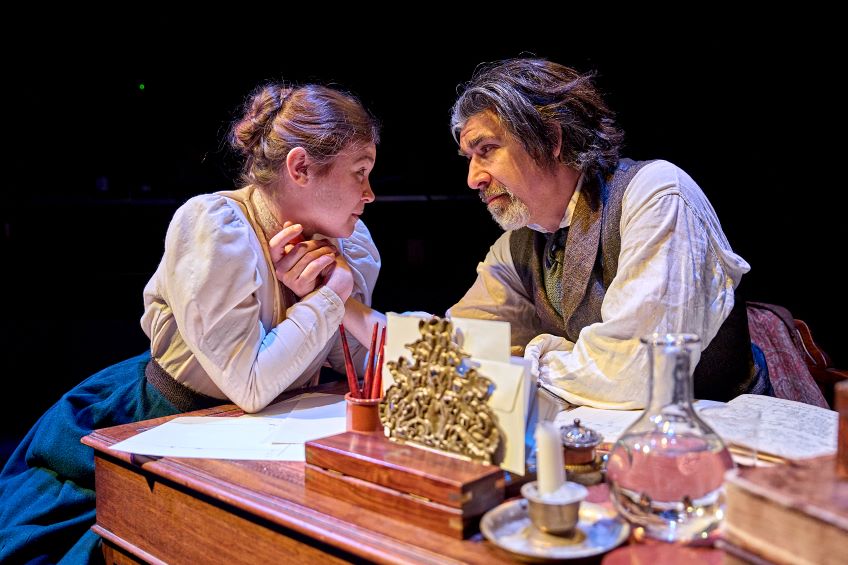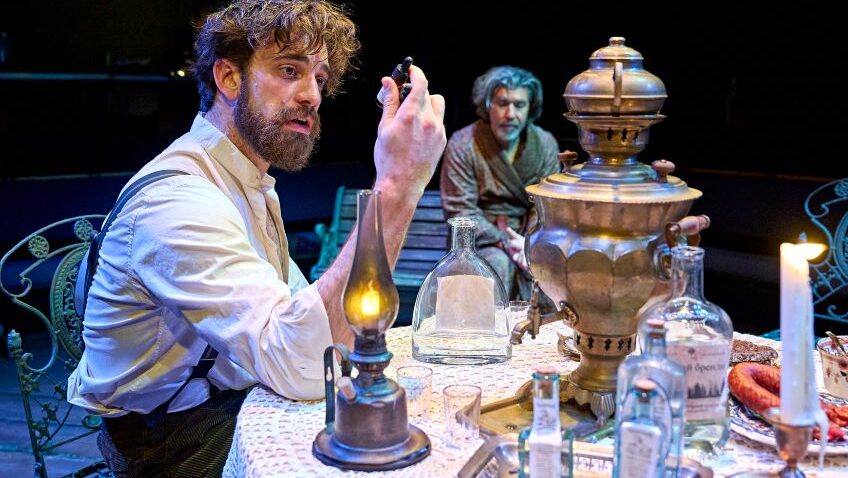Having just seen Andrew Scott’s one-man virtuoso version, it’s great to be able to see the play Chekhov actually wrote and to be able to follow what is going on; and even more so when it is directed by Trevor Nunn, the former artistic director of the RSC and the National Theatre, now 84-years-old and still going strong.
Nunn has had a brilliant career directing every single Shakespeare play plus classic and modern plays and musicals. Chekhov for him is the second greatest dramatist the world has ever seen. His traditional production of Uncle Vanya is beautifully measured and the intimacy of the Orange Tree’s in-the-round stage is perfect for it.
Time has run out for Chekhov’s characters who live in a stifling provincial backwater at the turn of the 20th century. Sacrifices have been made and there is no going back. There is only regret for the mediocrity, the banality and the loneliness of their wasted lives. There is no hope for any of them. All that is left is unhappiness, boredom and hateful old age.
An elderly cantankerous Professor and his much younger wife, Elena make a rare visit to the country estate, which is run by his brother-in-law, Vanya and his daughter, Sonya. They infect everybody with their idleness.

The high spot is the third act when the Professor delivers his bombshell about selling the estate and Vanya attempts to shoot him, not once, but twice, and misses both times. The scene is a brilliant Chekhovian mixture of melodrama and farce and tragedy and comedy.
James Lance’s Vanya, a scruffy 47-year-old Russian bear, looks absolutely washed-out. Andrew Richardson’s Astrov, the charismatic local doctor and forest preserver, is far more appealing and far less coarse. He, too, is in love with Elena, played surprisingly girlishly by Lily Sacofsky. Madeleine Gray’s sweet and touching Sonya is not plain at all and the stoicism of the big passionate speech, on which Chekhov’s play so movingly ends, is deliberately underscored.
To learn more about Robert Tanitch and his reviews, click here to go to his website. 




